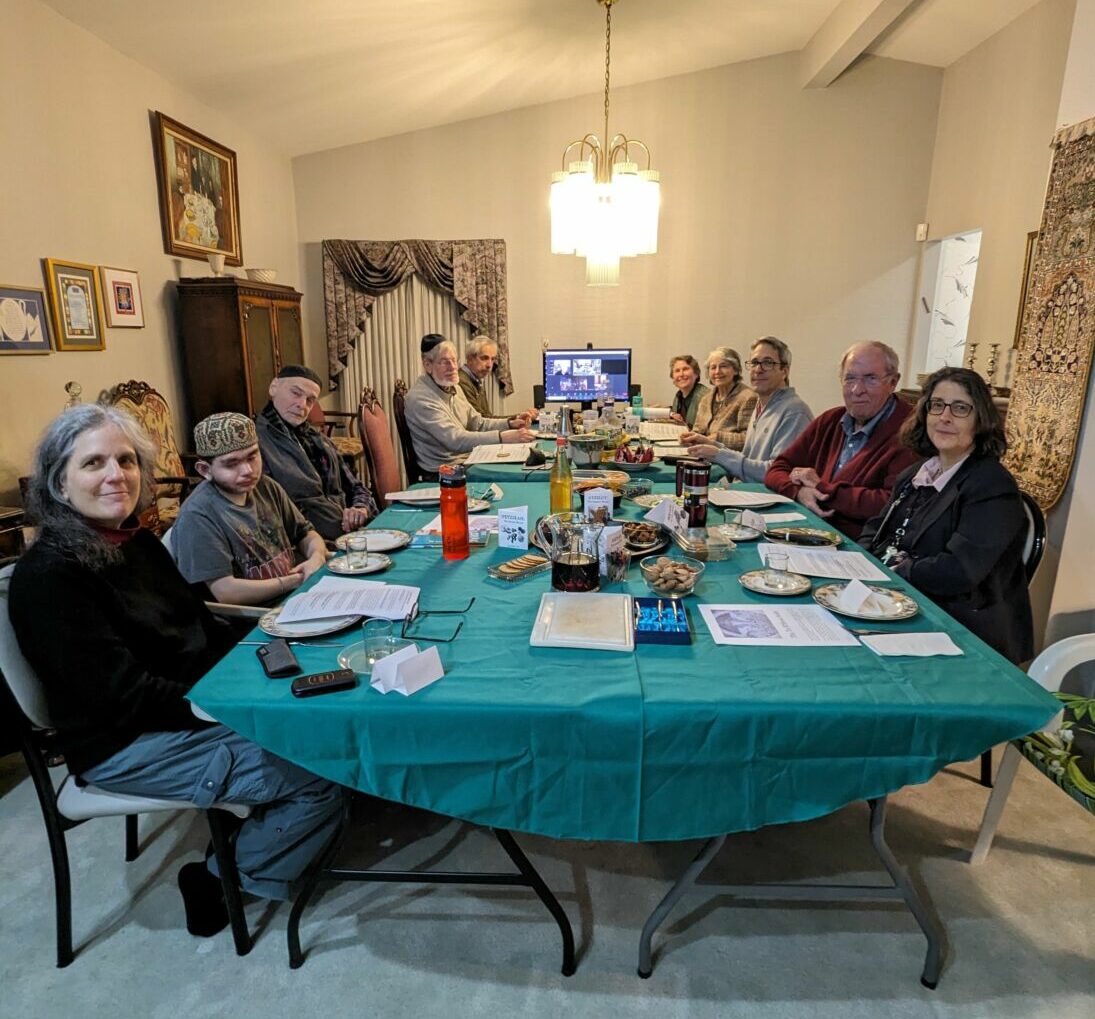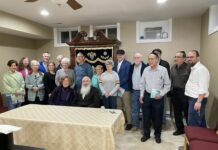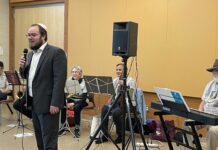
East Bank Havurah is small but mighty.
Though its in-person services and events usually attract a crowd of 10-16 people, with High Holiday services bringing in a crowd of around 30, the egalitarian chavurah group has been going strong for over 40 years. Nearly every month without fail, members of the fellowship will meet at each other’s houses on the first and third Saturdays and the second and fourth Fridays of every month for Shabbat and holiday services.
While chavurahs are typically less formal than regular synagogues, East Bank Havurah’s story is one that will be familiar to anyone who has studied synagogue history — like many congregations, it was first formed out of a shared desire for community.
The founding members of East Bank Havurah first met at a retreat held by Rabbi Zalman Schachter-Shalomi, z”l, best known for his role as one of the founders of the Jewish Renewal movement. A group of young attendees discovered that they were from the same part of Baltimore and decided that they should start regularly meeting up once the retreat was over.
“Most of us were unmarried at that point; we were just a bunch of 20s-somethings,” recalled Steve Siegel, East Bank Havurah’s treasurer and one of its founding members. “We started out using an old Conservative prayer book, picking and choosing the parts we wanted to use. At first, we would just meet to have a conversation, sing, do stuff together. But it gradually evolved into regular services.”
Siegel and his wife, Marcia Glass-Siegel, have been involved with the chavurah since the beginning. While its organization is rather informal, they often encourage members to volunteer their house or to lead the davening. As the chavurah does not have a designated rabbi, members take turns leading services.
“One of the remarkable and wonderful things about the chavurah is that we are deeply participatory,” Glass-Siegel added. “Everyone who is moved to do so is welcome to take a turn leading a service or leading a dvar Torah discussion. We really encourage each other.”
Many of the chavurah’s members have been with the group since it was first formed. But as the years have gone by, some younger members have joined due to positive word of mouth or through events East Bank Havurah co-hosts with other synagogues. In the past, the chavurah has hosted services with Hinenu: The Baltimore Justice Shtiebel and Congregation Beit Tikvah, among others. Many of its founding members have since gotten married and had children, further adding to the chavurah’s ranks.
Like many other synagogues and chavurahs, East Bank Havurah moved its services to Zoom when the COVID-19 pandemic hit. While they have largely transitioned back to in-person events, they still have members who tune into services on Zoom, and they sometimes hold them remotely if members are unable to host a week’s service.
“When we meet in person, there’s lots of melody and lots of singing. It’s more challenging to hear everyone on Zoom, but there’s still singing,” Glass-Siegel quipped.
Most recently, East Bank Havurah held a seder to celebrate Tu B’Shevat, the Jewish new year of the trees. The chavurah also hosts morning meditation sessions before Saturday Shabbat services, which are followed by Torah study discussions and potlucks. Siegel noted that the small audience these events attract make for a more intimate atmosphere, and lifelong friendships have been formed at chavurah Shabbat and holiday services.
Both Siegel and Glass-Siegel encourage prospective members to get involved in East Bank Havurah by joining their Meetup group or emailing them directly at [email protected].
“While I’m comfortable davening in a variety of synagogues, they don’t feel like my spiritual home,” Glass-Siegel said. “East Bank Havurah is, and I think a number of people feel that way.”







